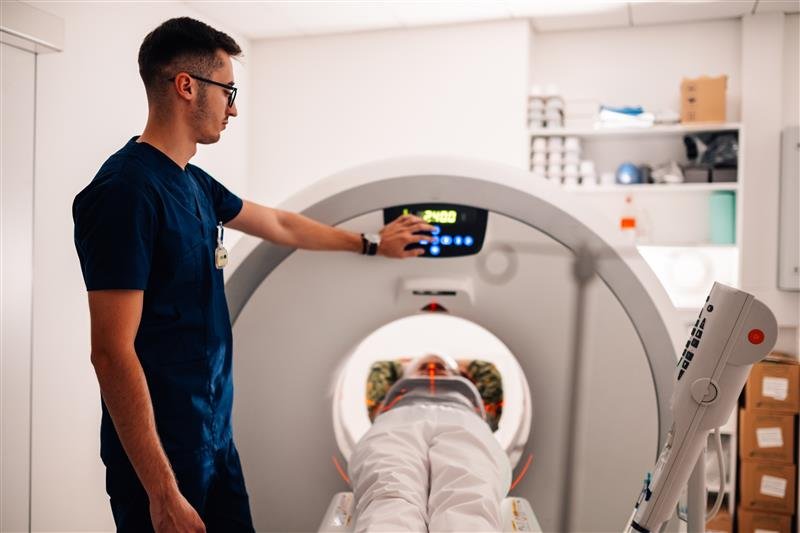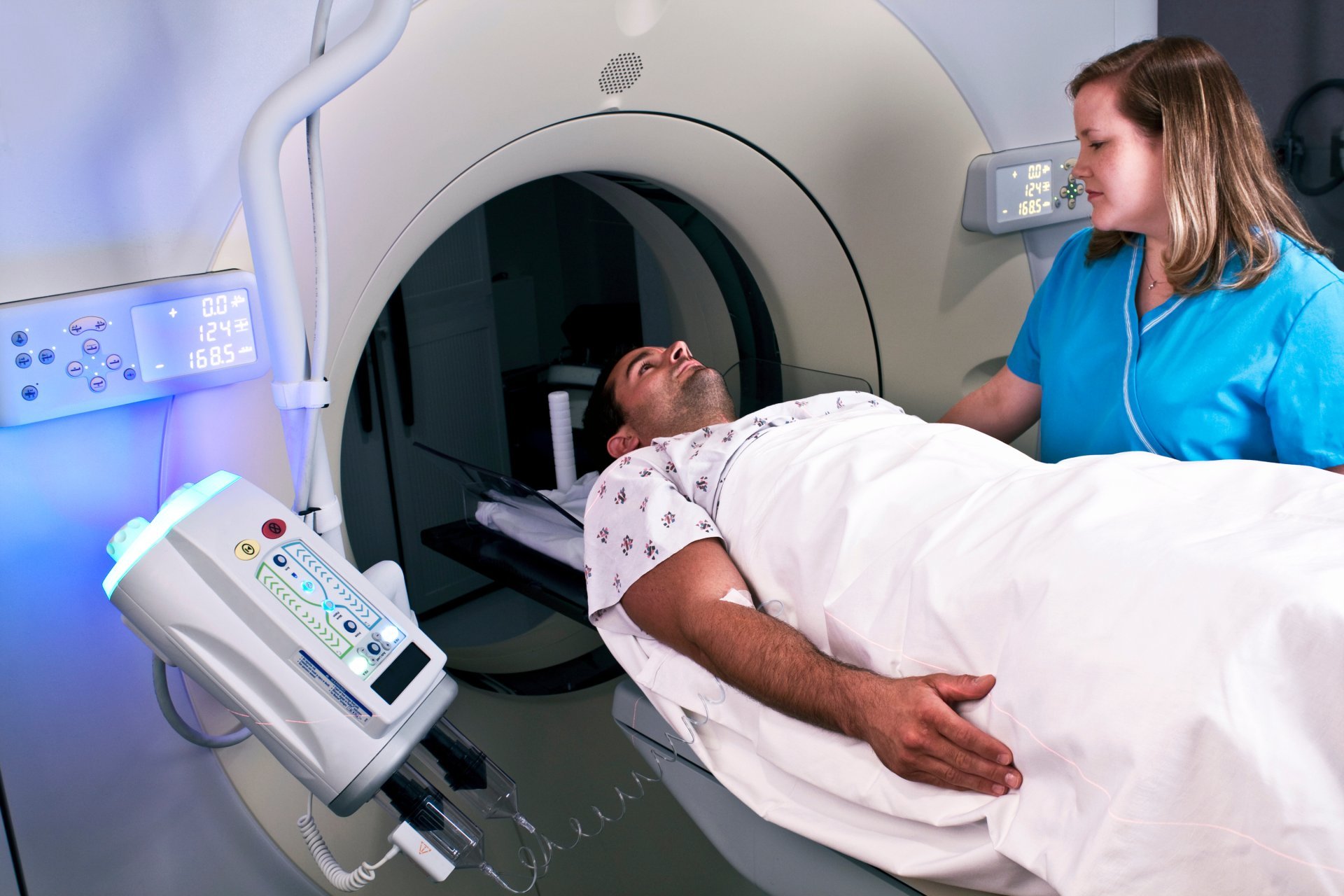Prolink helps you find CT tech jobs anywhere in the country

Scope of practice
Travel CT technologists operate radiology equipment and assist patients during exams. They assess the results to ensure they are clear enough for physicians to use. Some of the other duties they have include:
- Reviewing and interpreting physician instructions for the exams
- Positioning patients for CT scans
- Explaining procedures to patients
- Monitoring patients during scans
- Administering contrast media
- Following radiation safety protocol
- Ensuring patient safety during scans
Travel CT technologists work in hospitals and diagnostic centers across the country. In addition to CT scans, they can perform mammograms, ultrasounds, and other imaging procedures.

Required education and training
You’ll have to complete an associate degree in either nuclear medicine, diagnostic medical sonography, or radiography. You can access these programs through community colleges and technical schools. Alternatively, you can get a bachelor’s degree in radiology or radiologic technology.
You’ll have to then get certification through the American Registry of Radiologic Technologists. Once you’re certified, you can meet a few other requirements to earn CT credentials. Next, you’ll have to pass the computer tomography exam and, in some cases, get your license.
To begin working as a travel CT technologist, you will need to gain experience. Usually, this means a year or two of employment as a CT technologist.

Travel CT Technologist salary and benefits
There can be significant variations in earnings, though, depending on your education level, your experience, and even the state you’re working in. You can expect positions in larger cities to pay more than those in rural areas.
To be able to effectively work as a travel CT technologist, you will need to apply to an agency. Your agency will provide benefits that include:
- Life and health insurance
- Retirement planning
- Paid time off
- Housing and travel stipends
- You might also receive some tuition reimbursement.
Travel CT tech FAQs
The answer depends on whether you pursue an associate or a bachelor's degree. An associate degree takes two years, while a bachelor’s takes four. You’ll then have to receive certification and earn your CT technologist credentials. The CT credential program takes about six months to complete.
To start working as a travel CT techn, most agencies require you to have at least one year of experience in your chosen field.
Yes. Typically, travel healthcare positions pay more than local ones. You also receive travel and housing stipends that are usually tax-free.
When you’re a travel CT technologist, you must be proficient in the operation of all types of CT equipment. This allows you to calibrate the machinery correctly so you can take clear images. You also need to be an expert in radiation safety and anatomy.
Travel CT techns must also be able to communicate with patients and answer their questions. Because you’ll work at many locations, you will have to quickly adapt to new environments and protocols.
Yes. You have the opportunity to work with patients as you prepare them for CT procedures.
Accelerate your career growth with travel positions
CT tech jobs are predicted to grow 6% faster than average occupations through 2032. Travel positions put you at the forefront of this expanding field.
Travel assignments also open doors to specialized expertise. Master your skills in:
- Cardiac CT imaging
- Pediatric care
- Oncology scanning
- Neurological procedures
- Emergency trauma cases
Your diverse clinical experiences will help you discover and excel in your preferred specialty faster than permanent roles.
When you work with Prolink, a dedicated team of recruiters will help you find the travel contracts that fit your needs, goals, and lifestyle. We'll work with you every step of the way to ensure you're comfortable and supported in your role. When it's time for something new, we'll notify you when the ideal job appears on our radar.
Find your travel CT tech position today
Discover the world of opportunities awaiting you! Complete the form to take the first step.
When you partner with Prolink, you receive an industry-leading benefits package:
- Day-one health insurance and 401(k)
- Dental and vision coverage
- Short- and long-term disability
- Life insurance
- Exclusive perks and discounts
Apply for Your Next Position
Let us find your perfect fit. Connect with a recruiter today.







